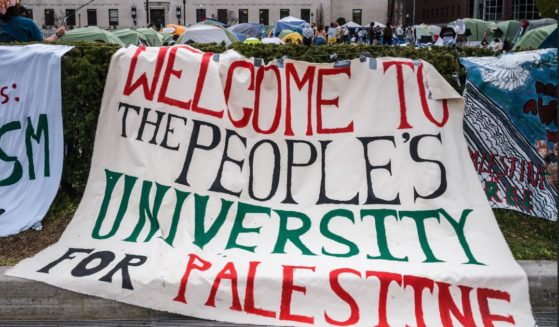Russian Consulate Trump Closed Was Running Chilling Operation
The Trump administration expelled 60 Russian diplomats and closed the Russian consulate in Seattle on Monday in an attempt to send a message to leaders in Moscow about the “unacceptably high” number of its spies placed in the U.S.
The move was also in response to Russia’s alleged role in the poisoning of an ex-spy and his daughter, and experts claim the massive export of Russian operatives could have a positive impact when it comes to limiting tech-industry and military espionage, as it strips Russia of its diplomatic presence on America’s West Coast.
According to Politico, nearly 27 countries have retaliated against Russia due to their alleged involvement in the chemical weapon attack made on an ex-Russian intelligence officer and his daughter, who were in Britain at the time.
Of those 27 countries, the U.S. has taken the most dramatic approach in its ousting of 60 diplomats, 15 of whom were suspected to be intelligence operatives who were based at Russia’s United Nations Mission.
The move from the U.S. prompted Russian officials to retaliate on Thursday and expel 60 U.S. diplomats of its own as well as close the American consulate in Saint Petersburg.
However, the closing of the Washington State consulate has many wondering why, out of all the locations throughout the U.S., Seattle was chosen.
On the domestic front, Seattle itself is an important city for intelligence collection efforts by Moscow and has a much quieter profile than those in city’s such as San Francisco and New York, two anonymous former U.S. intelligence officials told Politico.
And now that both the San Francisco and Seattle Russian consulates have been closed, Russia is lacking in a diplomatic facility anywhere west of Houston for the first time since 1971.
The result leaves Russian intelligence officers under diplomatic cover at a loss since most will find it harder to operate in such easy proximity to America’s tech-capitals.
Even shortly after the move, individuals suspected to be Russian spies have already been caught in their attempt to infiltrate local tech companies in Seattle — something former CIA officer John Sipher says is no surprise.
“Certainly, there were enough issues that were important to the Russians in Seattle — the naval bases, Microsoft, Boeing, Amazon,” said Sipher, who worked closely with FBI officials on counterespionage issues in the U.S.
“There was always nervousness within the national security agencies that the sheer number of ethnic Russians in these industries was something the Russians could take advantage of,” he added. “I don’t know if closing Seattle was a strategic choice; nonetheless, the concentration of high-tech and military resources makes it a sensible target.”
That nervousness was seen time and time again as, before its closure in 2017, the Russian consulate in San Francisco had served as the primary hub for Moscow’s intelligence-gathering for decades.
The crucial region acted as a key for Russian officials who collected data in its long-running attempt to map-out America’s fiber-optic cable network and was lumped together with Seattle as a “top-five” city for counterintelligence work by Russians.
However, Seattle never seemed to have the same prestige of San Francisco when it came to communications facilities, as Russian diplomats would often drive a van — loaded with diplomatic information — to Seattle from the Bay Area.
Though the frequency of the lucrative trips decreased over time as Russians switched to encrypted channels online, Seattle remained a rich location for espionage targets.
According to the former Intel officials, Russian operatives have long had their eyes set on companies such as Boeing and Microsoft, not to mention the many military bases scattered throughout Washington such as Naval Base Kitsap, which is home to eight nuclear-armed submarines.
Officials within the administration cited location as a primary issue, as the former Russian consulate had been far too close to both companies as well as the sensitive military bases.
And tracking the armed subs’ movements in such a close proximity had been a longstanding concern for U.S. officials in Washington, as foreign espionage workers might be able to identify new technology on the military craft or even document patrols — all valuable pieces of intelligence.
However, the biggest concern stemming from Seattle was its “cyber-related activities,” as U.S. officials last year had banned Kaspersky, a Moscow-based anti-virus software company, from being used on all government computers due to the company’s connections to Russia.
Counterintelligence officials within the U.S. cited concerns that Kaspersky was being wielded as a tool for covert communications by the Russians, with even further inquiries being made as to if domestic cyber-espionage had been done.
Though the company denied any ties to Russian espionage, The New York Times revealed that, on behalf of Israeli intelligence, a Russian espionage operation had been hacked into and it was observed that Russians used “back doors” in Kaspersky software to spy on U.S. intelligence documents.
“Antivirus is the ultimate back door,” said Blake Darché, a former N.S.A. operator and co-founder of Area 1 Security. “It provides consistent, reliable and remote access that can be used for any purpose, from launching a destructive attack to conducting espionage on thousands or even millions of users.”
Truth and Accuracy
We are committed to truth and accuracy in all of our journalism. Read our editorial standards.












